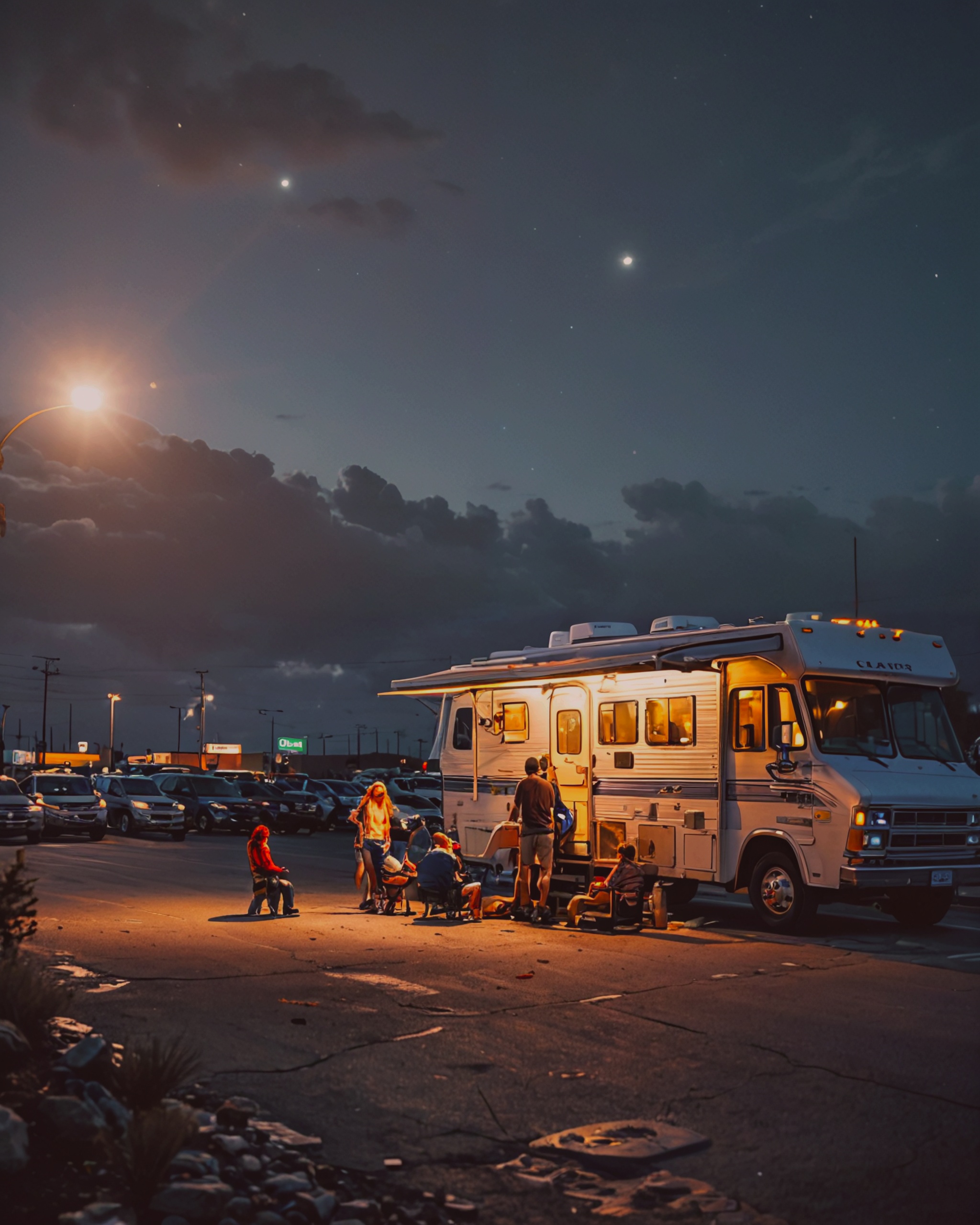The inevitable has finally happened: thousands of families who had taken to the road in recreational vehicles, Sprinter Vans and converted school buses finally and suddenly found themselves snapping out of what some are calling a “wandering trance.” These nomadic souls, who had been traveling full-time, woke up one morning with a collective epiphany: Why on earth did they ever leave home?
The phenomenon began just after dawn on July 8, 2024. Reports started flooding in from RV parks, highways, and remote boondocking sites across the country. Families, bleary-eyed and bewildered, gathered around picnic tables and campfires, scratching their heads and wondering how they had ended up living in 30-foot motorhomes.
“It was the strangest thing,” said Linda Thompson, a former marketing executive from Ohio who had been traveling with her husband and two children for the past two years. “One minute, I was planning our next stop at Yellowstone, and the next, I was staring at our RV thinking, ‘What in the world are we doing here?’ We stay at Wal Mart parking lots multiple times a week, for God’s sake.”

Theories abound about what caused this mass awakening. Some suggest it was a cosmic event, a celestial alignment that broke the spell of wanderlust. Others point to a psychological tipping point, where the pressures of full-time RV living finally cracked the veneer of freedom and adventure. The smart people all blame Youtube and Instagram, where influencers peddle a misleadingly rosy picture of life on the road.
Dr. Emily Hargrove, a psychologist specializing in nomadic lifestyles, believes it might be a collective realization brought on by prolonged isolation and the challenges of road life. “Living in an RV full-time can be incredibly rewarding, but it also comes with significant stresses. The constant movement, limited space, and the need to continually adapt can take a toll on mental health,” she explained. “Not to mention pooping in such tight quarters. Yuck.”
For the Thompsons, the reality of their situation hit hard. “We had this romantic idea of freedom and exploration,” said Linda. “But the truth is, we’ve been exhausted, stressed, and missing our extended family. Our kids haven’t had a consistent friendship for years. It’s like we woke up from a dream and realized we were living a nightmare.”
Social media lit up with similar stories. The hashtag #WhyDidIRoam started trending, with families sharing their own moments of clarity. “We’ve been on the road for five years,” wrote one user. “Today, I looked at my wife and said, ‘Let’s go home.’ And for the first time, she agreed.”
RV dealerships and storage facilities reported an influx of inquiries as families sought to offload their mobile homes and return to more traditional living arrangements. “It’s like everyone had the same revelation at once,” said Mark Reynolds, owner of a dealership in Arizona. “We’ve never seen anything like it. I usually lowball the crap out of these rubes, but with this increased inventory, I’m going lower than ever before!”
While some families are eager to return to their previous lives, others are grappling with the logistics of reintegration. “We sold our house and most of our possessions,” said John Miller, who had been traveling with his wife and two dogs. “Going back isn’t as simple as we thought, and now the mortgage rates and rent prices are double what they used to be! It’s only been 3 years, how has everything changed so much in such a short time? ”
As the dust settles on this mass exodus from the open road, one thing is clear: The dream of full-time RV living is not for everyone. For those who have awakened from their wandering trance, the journey ahead will involve rebuilding and rediscovering the meaning of home.
In the end, the question that lingers is not just why they roamed, but what they’ve learned from their time on the road. For many, it’s a bittersweet reflection on the balance between freedom and stability, adventure and belonging. And as they navigate their way back to conventional lives, the stories they share may serve as a cautionary tale for future wanderers, urging them to find harmony in the pursuit of their dreams.
Franklin Carson




